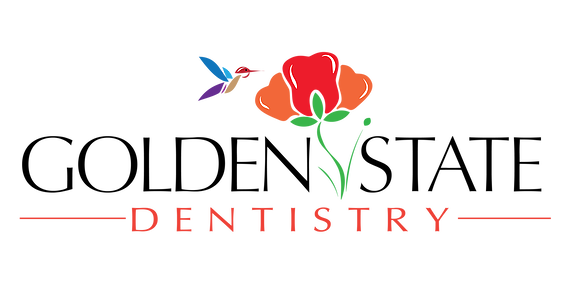
Educating yourself about common dental problems can help you prevent them and keep your smile for a lifetime. Here is a look at the most common dental problems and treatment options for each one.
1. Tooth Decay
Tooth decay, also known as dental caries or cavities, is caused by bacteria in your mouth that produce acids from sugar in your food. The acid eats away at the enamel, the protective outer layer of the tooth, which can lead to holes or cavities in your teeth.
Depending on the extent of decay, treatment for tooth decay can range from composite fillings to dental crowns and extractions.
You can prevent tooth decay by brushing and flossing your teeth twice a day and keeping up with your routine dental visits every 6 months.
2. Gum Disease
Gum disease, also known as periodontal disease, is caused by the build up of plaque on your teeth. Common symptoms of gum disease include red, swollen, and bleeding gums. You may also experience bad breath and tooth sensitivity.
Gum disease can be treated with deep cleaning (periodontal scaling and root planing) from your dentist. If left untreated, gum disease will progress to its more severe form, called periodontitis, that can lead to receding gums, damaged bone and tissue that hold the teeth, and loose teeth. What's more is that it can trigger an inflammatory response in your entire body.
Periodontitis can be treated with topical antibiotics to treat the infection and a referral to a periodontist, a gum disease specialist.
3. Mouth Sores
Mouth sores are a common ailment that affect many people at some point in their lives. These sores can appear on any soft tissues of your mouth, including lips, gums, inside your cheeks, tongue, and floor or roof of your mouth. They can cause some redness and pain, burning and tingling sensation around the sore.
Mouth sores usually resolve on their own in one to two weeks. In some cases, they may indicate an infection from a virus, like herpes simplex, or, in more severe cases, mouth sores can point to oral cancer. See your doctor if mouth sores do not resolve on their own in two weeks.
4. Crooked / Misaligned Teeth
Crooked and misaligned teeth may interfere with your chewing ability, can cause extensive wear to your teeth, and can be hard to clean. This can lead to tooth decay, cracked teeth, chronic headaches, and other health problems.
Fortunately, there are many treatment options for crooked teeth, including braces, removable aligners (Invisalign), and teeth straightening surgery. in addition, there are treatment options, like dental crowns and veneers, to restore existing damage caused by crooked teeth.
5. Tooth Sensitivity
Generally, your teeth become sensitive to hot and cold when the outer layer of your tooth, enamel, is worn away and the dentin is exposed due to tooth decay. Other causes of tooth sensitivity include:
- Gum disease
- Infection of the tooth root
- Cracked or broken tooth
- Worn down crown or filling
- Enamel erosion
- Receding gums
Switch to a fluoride-containing tooth paste for sensitive teeth, and a soft-bristled toothbrush. If the sensitivity persists, visit your dentist for an evaluation, as a root canal or restoration may be needed.
6. Bad Breath
Bad breath can be caused by several different factors, including:
- Poor oral hygiene
- Dry mouth
- Certain medication
- Acid reflux
- Cancer
The treatment of bad breath will depend on the cause. Thus, the dentist will do a thorough assessment before prescribing a course of action.
7. Oral Cancer
Oral cancers include cancers of the gums, tongue, lips, cheek, floor of the mouth, or hard or soft palate. Tobacco use (smoking or chewing) and alcohol use are the biggest risks for oral cancer. According to the Oral Cancer Foundation, one person dies every hour from oral cancer in the U.S.
The good news is that this disease is often curable if it's diagnosed and treated in the early stages. Most oral cancers start as a growth or pinkish lump in your mouth. If you experience growth in your mouth, then you need to see a dentist immediately for treatment.
Keep up with your regular dental check-ups and cleanings, so your dentist can examine your mouth and catch any signs of cancer early on.
8. Toothaches
Toothache is pain around the tooth that may be caused by many different factors, including:
- tooth decay
- abscess
- tooth sensitivity
- tooth injury
- recent dental work
- impacted teeth
- sinus congestion
- gum infection
- teeth grinding (bruxism)
We highly recommend getting a proper evaluation by your dentist if you feel any discomfort or pain in your teeth or jaw, so proper treatment can be administered. Leaving pain untreated can cause more severe, life-threatening problems to develop.
9. Tooth Discoloration
Teeth can become stained or discolored for many different reasons, including your lifestyle, poor dental hygiene, and disease. Causes of tooth discoloration include:
- smoking or chewing tobacco
- diet rich in dark-colored and bright foods such as wine, coffee, beets, etc.
- poor dental hygiene
- disease such as liver disease, calcium deficiency, eating disorders, and celiac disease.
- certain medicine, like antibiotics tetracycline and doxycycline, antihistamines, and other
- aging
There are several treatment options available to treat tooth discoloration. These include:
- Following a good dental hygiene routine by brushing and flossing every day.
- Brushing teeth with baking soda a couple of times a week.
- Using over-the-counter products (whitening toothpastes, strips, trays and gels).
- Professional in-office whitening treatment
Some tooth discoloration is irreversible, in that case your dentist can cover up the discoloration with veneers, crowns, and white composite fillings.
10. Tooth Attrition (Wear)
Dental attrition is the loss of tooth structure or tissue caused by tooth-on-tooth contact. Overtime, if dental attrition is left untreated, it can wear away the enamel, exposing the dentin of the tooth. This can lead to tooth sensitivity and decay.
The most common cause of dental attrition is bruxism, the grinding and clenching of the teeth that occurs during sleep, usually due to muscle hypertonicity or tension. Another cause of dental attrition is bite misalignment. If your teeth are not aligned properly, they could be rubbing together.
Depending on the cause of dental attrition, there are various treatment options. Most commonly, dental attrition treatment will involve a combination of orthodontic treatment to fix tooth alignment (e.g. Invisalign), dental restorations to fix damaged teeth, and treatment for bruxism (e.g. wearing a night guard).
11. Cracked or Broken Tooth
Your tooth can become cracked or broken when you:
- bite into something hard (e.g. a fork)
- get an injury (e.g. playing sports or car accident)
- grind your teeth
- engage in harmful habits (e.g. chewing ice)
- have large amalgam restorations that weaken teeth over time
Depending on the size of the damage, your dentist may recommend a crown to be fitted over the fractured or broken tooth. If the fracture extends into the pulp, a root canal would be necessary, followed by a restoration (i.e. veneer or crown). If the damage is beyond repair, the tooth would need to be extracted.
12. Receding Gums
Gum recession is when gums become pushed back or wear away, exposing the root of the tooth. This can lead to sensitivity and pain, and can expose the teeth to infection, decay, and eventually bone and tooth loss, if left untreated.
Gum recession is most common in adults over the age of 40 and can be caused by a number of factors, including:
- brushing too hard in the long-term
- using a hard-bristled toothbrush
- plaque build-up from poor dental hygiene
- periodontal (gum) disease
- tongue piercings
- misaligned teeth
- damage from dental work
- heredity
- smoking or any tobacco use
Even though receding gums won't grow back, there are several treatment options to prevent them from receding further. Depending on the underlying problem, some treatment options include deep cleaning, antibiotics, flap surgery, or gum grafting.
13. Impacted Teeth
An adult tooth that doesn't come in normally is "impacted." Wisdom teeth, for example, can cause pain when they are impacted or fail to break through the gumline. This usually causes inflammation of the gums, but pain may extend to the jaw and the ear. Take over the counter pain medication or visit your dentist for a wisdom tooth extraction.
If you are experiencing any of the above problems, call our dental office and book an appointment at (925) 705-7093.
Relevant Readings
Enamel Erosion - Symptoms, Causes, Prevention, and Treatment
5 Ways to Tell That You May Need a Root Canal
Why Teeth Whitening is Best Done at the Dentist
Instant Jaw Pain Relief with Botox® - What You Need to Know


.jpg?width=712&name=GSD-Scalloped-Tongue-Causes-and-Treatment-Blog-01.27.2210.21.21%20(1).jpg)











.jpeg?width=425&name=GSD-How-to-Combat-Dental-Plaque-07.22.24-2%20(1).jpeg)



